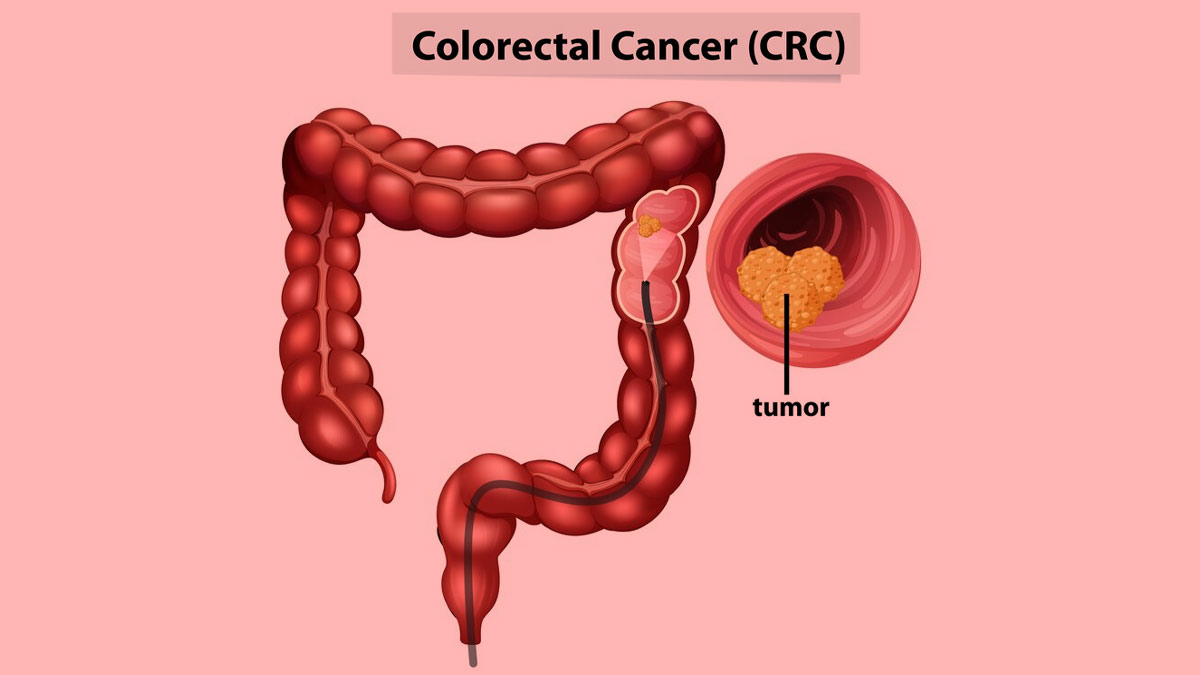
Colorectal cancer or bowel cancer, is a type of cancer that originates in the colon or rectum. It usually begins as a polyp, a small cluster of cells on the inner lining of the colon or rectum - and can gradually develop into cancer over time. The colon is the first and longest segment of the large intestine. The large intestine is the final part of the digestive system.
One intriguing aspect of colorectal cancer is its potential to be preventable through regular screenings like colonoscopies, which can detect and remove polyps before they become cancerous.
The causes of colorectal cancer
“Genetics play a significant role in determining an individual's risk for developing colorectal cancer like Familial Adenomatous Poliposis (FAP), Lynch Syndrome, Gardeners Syndrome. Lifestyle factors such as a high-fat low vegetable diet, greater consumption of red meat especially smoked or charred, lack of physical activity, smoking, and heavy alcohol consumption have been linked to an increased likelihood of developing colorectal cancer,” said Dr Abhishek Purkayastha, Radiation Oncologist, TGH Onco-Life Cancer Centre, Talegaon.

Also read; Colorectal Cancer Is The Third Most Common Cancer Worldwide: Expert Shares Tips To Reduce Its Risk
Moreover, age plays a significant role in the development of this type of cancer, with individuals over the age of 50 being at higher risk. Studies have shown that an imbalance in the gut microbiome can lead to chronic inflammation and damage to the intestinal lining, potentially increasing susceptibility to colorectal cancer. According to the Iranian Journal of Public Health, environmental factors like air pollution and exposure to certain chemicals may also play a role in promoting tumor growth in the colon and rectum. Understanding these diverse causes can help improve prevention strategies and early detection methods for colorectal cancer.
The Symptoms Of Colorectal Cancer
According to Dr Purkayastha, colorectal cancer is a silent killer that often shows no symptoms in its early stages. However, as the disease progresses, certain signs may be visible.
- Persistent changes in bowel habits, altered bowel habits such as diarrhea or constipation, along with blood in the stool or rectal bleeding can mean colorectal cancer.
- Unexplained weight loss and constant fatigue are also common symptoms that should not be ignored.
- Those with colorectal cancer may experience abdominal pain or discomfort, bloating, and a feeling of incomplete emptying after bowel movements.
- Change in the size or shape of stools will require immediate attention as it can be colorectal cancer.

It is crucial to pay attention to these warning signs and consult an expert if they persist for an extended period. Early detection and treatment play a vital role in improving outcomes for patients with colorectal cancer.
Also read: How Your Bowel Habits Change With Colorectal Cancer: Symptoms To Note
Treatment Options
As per Dr Purkayastha, treatment includes surgery, chemotherapy, radiation therapy, and targeted therapy. Your doctor will decide the line of treatment for you. Encouraging individuals to undergo routine colonoscopies or other recommended screenings can help to manage their health effectively and detect colorectal cancer in its early stages. This proactive strategy is instrumental in lowering mortality rates and enhancing the outlook for individuals impacted by this deadly cancer.
Also watch this video
How we keep this article up to date:
We work with experts and keep a close eye on the latest in health and wellness. Whenever there is a new research or helpful information, we update our articles with accurate and useful advice.
Current Version